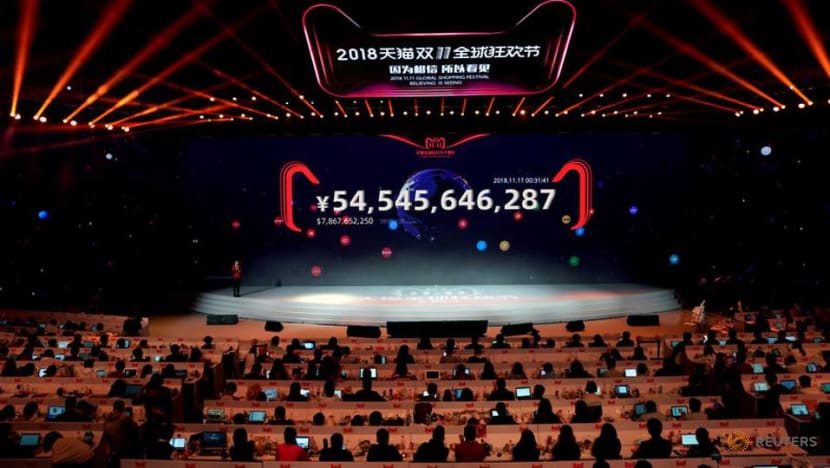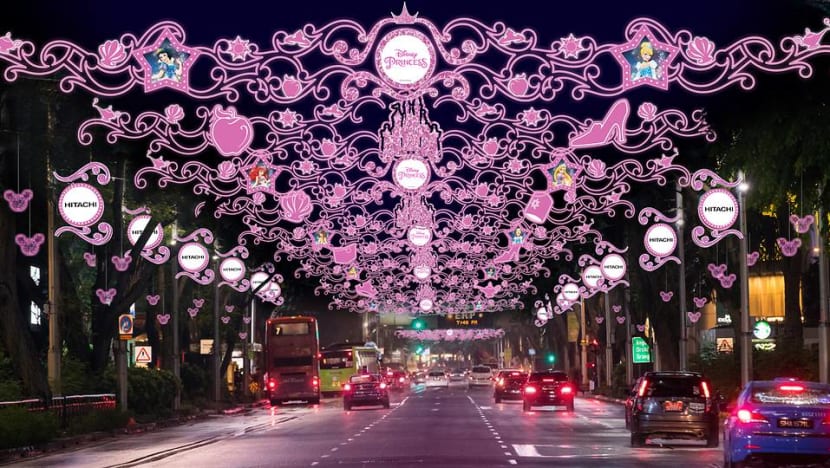commentary Commentary
Commentary: Retail therapy won’t repair your damaged sense of self-worth
We hope our findings can help consumers understand and rein in emotional impulses that drive their shopping, say two consumer psychology experts.

Pedestrians using the scramble crossing in Orchard Road on Dec 16, 2017. (Photo: Chan Luo Er)
PARIS: As shopping trends peak over Christmas, this might be a timely moment to gauge the effects of a kind of retail therapy that researchers call compensatory consumption – but one that has a non-conscious process behind it.
Indeed, why precisely do consumers buy products that they don’t really need?
And if shopping is supposed to be therapeutic, to what degree is such consumption helping them to deal with their insecurities?
Most importantly, once they buy the product, does that purchase actually make them feel better?
These are the questions which have driven our research since 2015, absorbed as we are by the hidden impulses driving people’s consumption choices.
What we have discovered is that certain marketing tactics, associated with forms of consumption, including the ones we see around Christmas time, might adversely impact consumer well-being. By bringing these findings to the fore we hope they can help consumers understand and rein in emotional impulses that drive their shopping.
READ: The festive season brings loneliness, sorrow and anxiety for some, a commentary
CHRISTMAS DRIVE
Surveys reveal that the end-of-year holidays encourage a degree of collective over-consumption and binge shopping rarely seen at any other time of the year.
Shoppers in the United States, for example, will spend an average of over US$900 (S$1,235) on their gifts this year (where an average monthly net salary is US$4,158). For American retailers, meanwhile, Christmas represents the year’s largest economic stimulus: In 2018, it is projected to grow to over US$700 billion, a 4.55 per cent growth compared to 2017.
Singaporeans set aside a comparable proportion of an average of S$769 for their Christmas shopping (out of an average monthly net salary of S$3,973).
These trends are reflected elsewhere in Asia as people spend excessively not just at Christmas but pretty much from November to February.
These shopping sprees take in the November 11 Singles’ Day and Lunar New Year in China; the end-of-year holidays travels in the region; and the year-end bonuses in Japan, South Korea, Taiwan and Singapore.

While there are no available statistics for retail therapy in Singapore, official studies reflect the latest consumption patterns through the Consumer Price Index.
Unquestionably, they reveal Singaporeans’ upward tendency towards brand consumerism. Indeed, the 2014 study shows them spending an average of 22.2 per cent of their global budget on recreation, culture, goods and services, communication and clothing, compared to 22.3 per cent on food.
The next five-yearly survey scheduled for 2019 is likely to see this trend spike up even more sharply.
READ: Getting married in an era of consumerism, a commentary
NON-CONSCIOUS DRIVE TO CONSUME
Among these consumers are people unconsciously seeking to boost a damaged self-worth (their power, intelligence, or even sociability). This compensatory consumption is a well-documented impulse, an action arguably becoming more widespread as consumption becomes available 24/7, thanks to the services on Internet.
So, when Sophie (not her real name), discovers her project’s funding had been slashed by her boss, she suddenly becomes enamoured by the Bottega Veneta leather bag advertisement in her favourite fashion magazine. Meanwhile, after failing his engineering course, Phillip’s first instinct is to buy a marble chess set he never previously dreamt of splurging on.
Both have been drawn into compensatory consumption, which aims to fix damaged aspects of self-identity.

Sophie seeks a product symbolic of status and power, to regain her sense of power. Meanwhile, Phillip’s interest in a chess set that is symbolic of intelligence is driven by his need to affirm his intellectual capacity.
Crucially, both are unlikely to be aware of the drivers behind their interest in these products.
READ: Think you know your wife? Try buying her a present, a commentary
EXPLICIT VERSUS IMPLICIT MARKETING
But does consumption really manage to repair their self-worth? For three years we have explored the effects of compensatory consumption on self-worth in the US, France and India.
Concomitantly, we analysed what effect marketing tactics have on this retail therapy. Across seven experiments involving over a thousand volunteers, our research reveals that whether compensatory consumption works to fix people’s damaged sense of self-worth depends on the extent to which the connection between the products and aspects of the threatened self-identity is made explicit.
Our conclusions, recently published in Journal of Consumer Research, give us pause for thought.
Yes, consumers compensate for their “self-deficit” by purchasing goods they may not consciously need. However, if brands incite connections to their “self-deficit” in an explicit manner, through their products’ names or marketing slogans, this “compensatory” effect is impeded, even at a subconscious level.
When Sophie is tempted by the Bottega Veneta leather bag, its tagline, “When your own initials are enough”, spells out the product’s connection with power, which is the damaged aspect of her self-identity but might undermine her process of self-repair.
Phillip’s unconscious desire to repair his insecurities about his intelligence through purchasing the chess set could be undermined if the makers use and remind him of slogans like that coined by the 17th century French philosopher Blaise Pascal: “Chess is the gymnasium of the mind”.
In both cases, these explicit messages will remind Sophie and Phillip about their respective failures of power and intelligence, and rumination will impede repair of self-worth.

However, our research also reveals that when connections between the product and “self-deficit” are not explicit, it increases the chances for self-repair. Sophie might well restore her self-worth, for example, by splurging on the Bottega Veneta leather bag if there are no taglines explicitly associating it to aspects of power, as luxury products inherently and implicitly symbolise and boost feelings of power and status.
READ: Who on earth still buys counterfeit branded goods? A commentary
CHRISTMAS SHOPPING WITH A STING
This outcome is not limited to luxury goods alone; it can apply to any goods that symbolise an aspect that a shopper feels strongly about. So, a mere subscription to an intellectual magazine with an explicit tagline could also re-activate negative feelings about one’s own intelligence.
Our research outlines the conditions in which this form of consumption can restore the damaged self. It also questions the marketer's belief that taglines about the attributes of a brand or product is beneficial for consumers seeking to associate themselves with those attributes.

In conclusion, compensating through consumption of products with explicit marketing could have the insidious effect of actually prolonging rather than repairing the damaged self-concept.
So, in this high-octane festive period, should you feel, like Sophie and Phillip, an unexplainable urge to buy a fancy leather bag, high-brow chess set, Rolex watch, upmarket pen, speedy car, or any other symbol of self-worth, you should pause and think again.
Just what is driving this impulse? Should the desire be linked to a life experience that has shaken your confidence, perhaps your purchase will not repair the damage you are trying to overcome – quite the opposite.
Dr Nimish Rustagi holds a PhD in marketing from HEC Paris whose works brings together a combination of academic research and managerial experience. Professor L J Shrum is in HEC’s Marketing Department and is a consumer psychologist. This commentary is based on a paper published in the Journal of Consumer Research.













